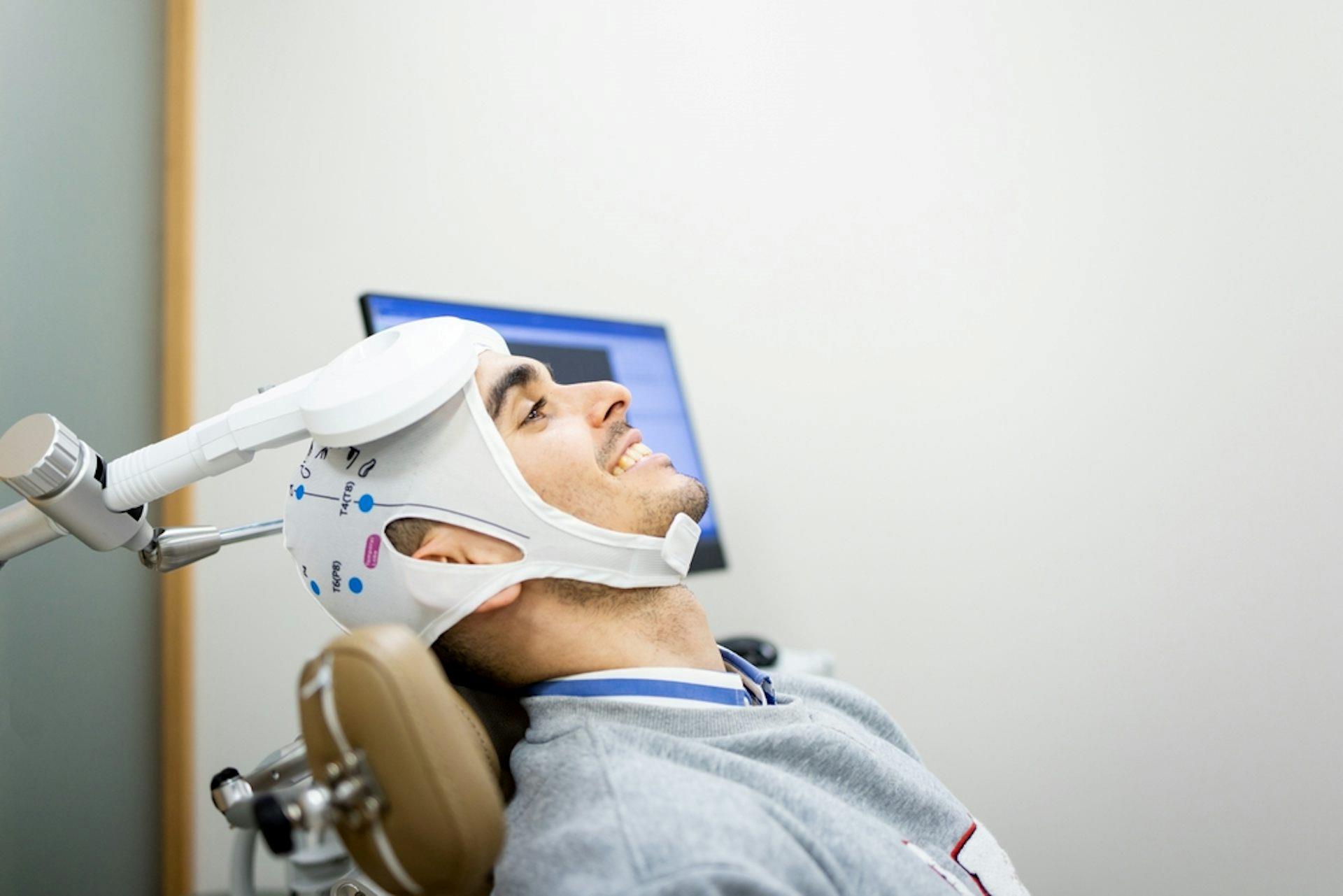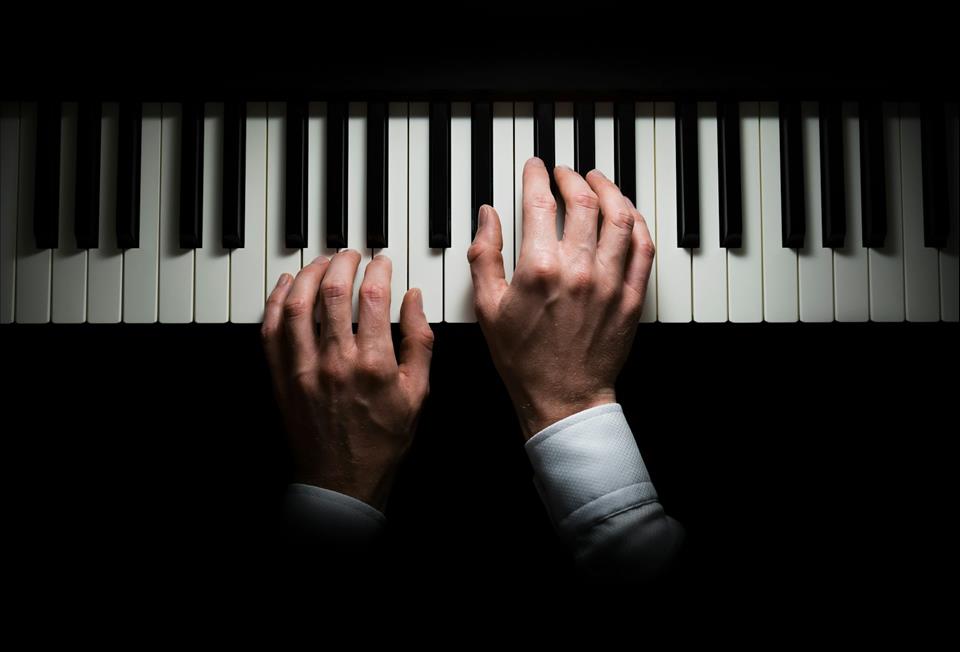Neuroscience Finds Musicians Feel Pain Differently From The Rest Of Us
After years of working with musicians and witnessing how they persist in musical training despite the pain caused by performing thousands of repetitive movements, I started wondering: if musical training can reshape the brain in so many ways, can it also change the way musicians feel pain, too? This is the question that my colleagues and I set out to answer in our .
Scientists already know that pain activates several reactions in our bodies and brains, changing our attention and , as well as our way of moving and behaving. If you touch a hot pan, for example, pain makes you pull back your hand before you get seriously burned.
Pain also changes our brain activity. Indeed, pain usually reduces activity in the motor cortex , the area of the brain that controls muscles, which helps stop you from overusing an injured body part.
These reactions help to prevent further harm when you're injured. In this way, pain is a protective signal that helps us in the short term. But if pain continues for a longer time and your brain keeps sending these “don't move” signals for too long, things can go wrong.
For example, if you sprain your ankle and stop using it for weeks, it can reduce your mobility and disrupt the brain activity in regions related to . And this can increase your suffering and pain levels in the long term.
Research has also found that persistent pain can shrink what's known as our brain's“body map” – this is where our brain sends commands for which muscles to move and when – and this shrinking is linked with worse pain.
But while it's clear that some people experience more pain when their brain maps shrink, not everyone is affected the same way . Some people can better handle pain, and their brains are less sensitive to it. Scientists still don't fully understand why this happens.
Musicians and painIn our study, we wanted to look at whether musical training and all the brain changes it creates could influence how musicians feel and deal with pain. To do this, we deliberately induced hand pain over several days in both musicians and non-musicians to see if there was any difference in how they responded to the pain.
To safely mimic muscle pain, we used a compound called . It's a protein that normally keeps nerves healthy, but when injected into hand muscles, it makes them ache for several days, especially if you're moving your hand. But it's safe, temporary, and doesn't cause any damage.
Then we used a technique called (TMS) to measure brain activity. TMS sends tiny magnetic pulses into the brain. And we used these signals to create a map of how the brain controls the hand, which we did for each person who took part in the study.
We built these hand maps before the pain injection, and then measured them again two days later and eight days later, to see if pain changed how the brain was working.

Transcranial magnetic stimulation involves sending tiny electrical pulses to the brain. Yiistocking/Shutterstock A striking difference
When we compared the brains of the musicians and the non-musicians, the differences were striking. Even before we induced pain, the musicians showed a more finely tuned hand map in the brain, and the more hours they had spent practising, the more refined this map was found to be.
After pain was induced, the musicians reported experiencing less discomfort overall. And while the hand map in non-musicians' brains shrank after just two days of pain, the maps in musicians' brains remained unchanged – amazingly, the more hours they had trained, the less pain they felt.
This was a small study of just 40 people, but the results clearly showed that the musicians' brains responded differently to pain. Their training seems to have given them a kind of buffer against the usual negative effects, both in how much pain they felt and in how their brain's motor areas reacted.
Of course, this doesn't mean music is a cure for chronic pain. But it does show us that long-term training and experience can shape how we perceive pain. This is exciting because it might help us understand why some people are more resilient to pain than others, along with how we can design new treatments for those living with pain.
Our team is now conducting further research on pain to determine if musical training may also protect us from altered attention and cognition during chronic pain. And off the back of this, we hope to be able to design new therapies that“retrain” the brain in people who suffer from persistent pain.
For me, this is the most exciting part: the idea that as a musician, what I learn and practise every day doesn't just make me better at a skill, but that it can literally rewire my brain in ways that change how I experience the world, even something as fundamental as pain.
This article was commissioned by Videnskab as part of a partnership collaboration with The Conversation. You can read the Danish version of this article, here .

Legal Disclaimer:
MENAFN provides the
information “as is” without warranty of any kind. We do not accept
any responsibility or liability for the accuracy, content, images,
videos, licenses, completeness, legality, or reliability of the information
contained in this article. If you have any complaints or copyright
issues related to this article, kindly contact the provider above.
Most popular stories
Market Research

- New Cryptocurrency Mutuum Finance (MUTM) Raises $15.8M As Phase 6 Reaches 40%
- Bydfi Joins Korea Blockchain Week 2025 (KBW2025): Deepening Web3 Engagement
- Yield Basis Nears Mainnet Launch As Curve DAO Votes On Crvusd Proposal
- 0G Labs Launches Aristotle Mainnet With Largest Day-One Ecosystem For Decentralized AI
- Ethereum-Based Defi Crypto Mutuum Finance (MUTM) Raises Over $16 Million With More Than 720M Tokens Sold
- Fintech's Gender Gap In Focus: Drofa Comms' Women Leading The Way Joins Evolvh3r's She Connects At TOKEN2049






















Comments
No comment